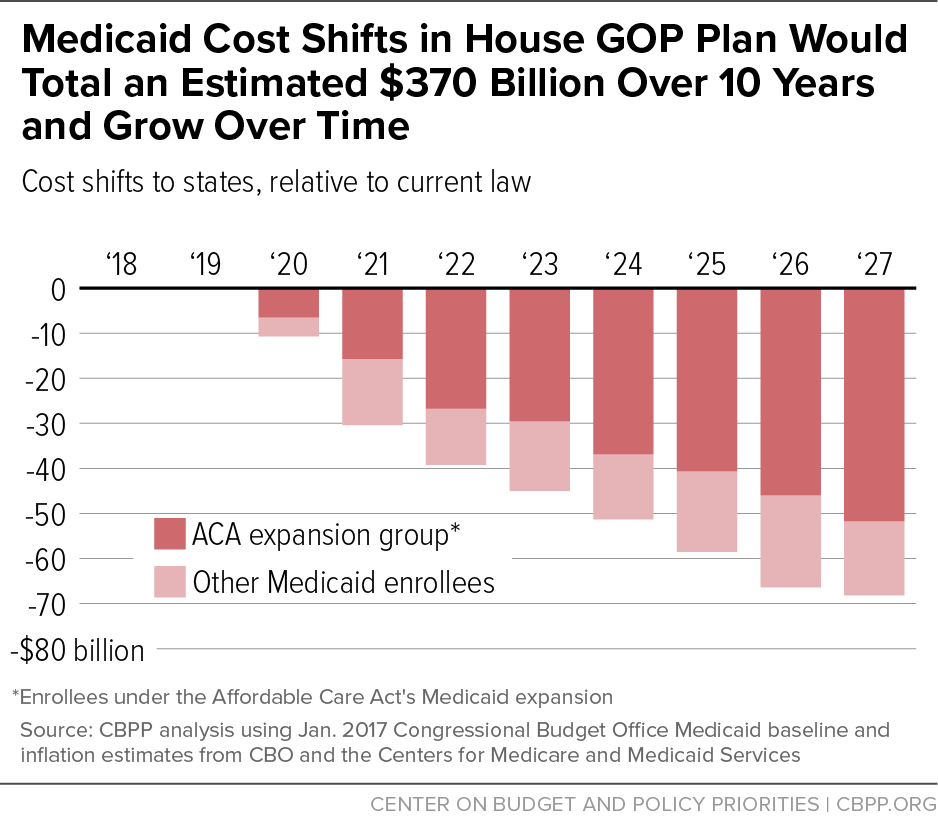The GOP plot to drown Medicaid in the bathtub
Conservatives don't want to reform Medicaid. They want to dramatically shrink it — or kill it.


A free daily email with the biggest news stories of the day – and the best features from TheWeek.com
You are now subscribed
Your newsletter sign-up was successful
Anti-tax activist Grover Norquist famously declared, "I don't want to abolish government. I simply want to reduce it to the size where I can drag it into the bathroom and drown it in the bathtub."
That's an apt description for the GOP approach to Medicaid, too.
Medicaid is the government program that provides health insurance coverage for low-income Americans. Like Medicare, the program for the elderly, Medicaid is a single-payer system. Unlike Medicare, which is fully funded at the federal level, Medicaid is a joint effort that involves federal and state government spending.
The Week
Escape your echo chamber. Get the facts behind the news, plus analysis from multiple perspectives.

Sign up for The Week's Free Newsletters
From our morning news briefing to a weekly Good News Newsletter, get the best of The Week delivered directly to your inbox.
From our morning news briefing to a weekly Good News Newsletter, get the best of The Week delivered directly to your inbox.
Medicaid has numerous problems. As conservatives routinely point out, several studies show health outcomes for Medicaid recipients are no better than for people without insurance. State governments also don't have the same freedom to deficit spend as the federal government. So the fact that Medicaid is a "defined benefit" program — it commits to a certain level of coverage for recipients, then forks over whatever money is necessary to meet those obligations — can create big fiscal liabilities for state budgets.
The GOP's new ObamaCare replacement plan, the American Health Care Act (AHCA), would change the federal-state Medicaid relationship to a "defined contribution" system starting in 2020. The federal government would simply give the states a certain amount of money, calculated on a per-beneficiary basis and indexed to rise with the inflation rate in medical prices. Then the states would buy whatever benefits for their Medicaid population they can.
The idea is to free up states to experiment with Medicaid coverage design and care delivery, and maybe solve the program's problems. Which isn't crazy, on its face.
After all, it's theoretically possible that the switch from "defined benefits" to "defined contributions" would maintain the same level of benefits. But let's be realistic: In practice, it will almost always mean big cuts to benefits. And you can bet Republicans are banking on this.
A free daily email with the biggest news stories of the day – and the best features from TheWeek.com
The Medicaid population is sicker than average, so their costs will likely rise faster than inflation in medical prices overall. And while the AHCA's per-beneficiary spending formula begins in 2020, it starts at a baseline calculated according to Medicaid's per-beneficiary spending in 2016 — which will be too low by 2020.
The AHCA would also end ObamaCare's expansion of Medicaid. The federal government offered to cover 90 percent of all funding for the expansion population, but under the AHCA that would revert to 57 percent in 2020. States would have to make up the rest, effectively forcing them to ditch the expansion.
Put it all together, and the states would have to spend an extra $70 billion annually by 2027 to keep up with current Medicaid benefits.

States obviously won't spend that extra money, meaning Medicaid benefits will be substantially slashed.
This is a huge problem, because Medicaid funding is already too stingy. The program's total spending in 2015 was $545 billion, compared to Medicare's $646 billion, even though Medicaid covers about 13 million more people. As a result, Medicaid's payments for care are already quite low, so a lot of providers don't participate. That makes Medicaid's networks very narrow, and high-quality care hard to come by.
The Medicaid population is sicker than average largely because they're low-income and, bluntly put, poverty is a poison. Poor people are under far more stress, and have a harder time buying medicine or preventative care. They're far more likely to live around lead and other forms of pollution, more likely to live without adequate heating or cooling, and less likely to be able to afford quality food. This exacerbates all sorts of health problems, from diabetes to cardiovascular and respiratory diseases.
This largely explains why the Medicaid population has unimpressive health outcomes. Getting them the same health results as a middle-class person who happens to be going without insurance requires considerably more resources.
Studies also show that Medicaid provides Americans with more economic security. Medicaid beneficiaries are more likely to suffer from high debt and bankruptcies, so the program keeps medical costs from adding to their burdens. At bottom, insurance is a financial transfer of income to the people who need it to pay for medical expenses.
The lesson here ought to be obvious: The fix to Medicaid's problems is more spending, not less — and maybe moving the whole program to the federal level, like Medicare is already.
Republicans are proposing the opposite. They want to spend less, and transfer control to the states. The end result may well be reducing Medicaid to the size where Republicans "can drag it into the bathroom and drown it in the bathtub."
But this puts Republicans in a tremendous political fix. Hard-core right-wingers actually think the AHCA doesn't slash Medicaid enough. But plenty of moderate Republicans, particularly in the Senate, think it cuts Medicaid far too much. Remember, the problems of wage stagnation, rising health care costs, and increasing health problems have hit white working-class Republican voters hard too. If you're a Republican senator in, say, Ohio, do you really want to cut Medicaid benefits for hundreds of thousands of your constituents?
Only 19 states declined the Medicaid expansion, so plenty of the Republicans in the Senate represent constituents who would be hung out to dry if the AHCA passes. Four Republican senators are already publicly indicating they may jump ship over this. You can be sure more Republican senators are privately thinking the same thing. It would only take three defectors to scuttle the GOP's majority and torpedo the AHCA.
Republicans have a huge Medicaid mess on their hands. And it's impossible to see a way where they can clean it up with their ideology, their ObamaCare replacement, and their chances of re-election all intact.
Jeff Spross was the economics and business correspondent at TheWeek.com. He was previously a reporter at ThinkProgress.
